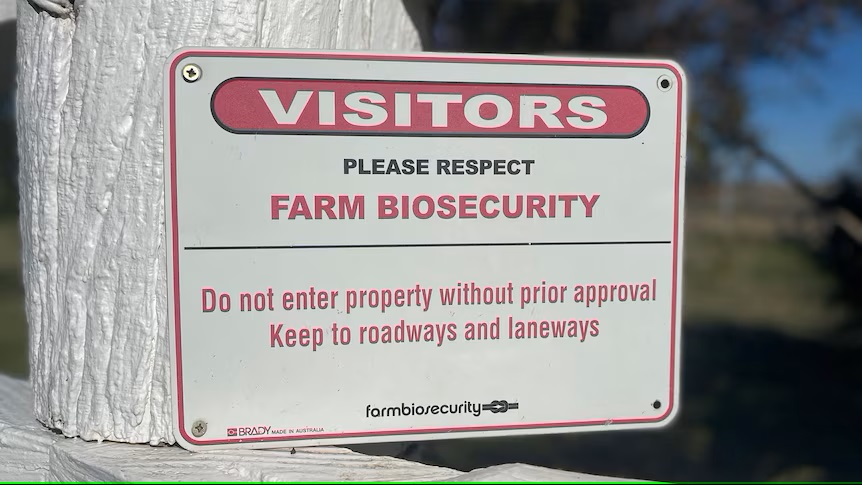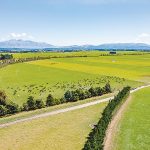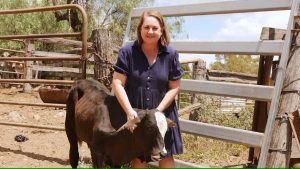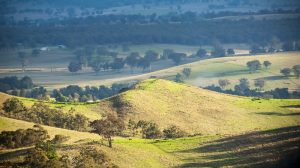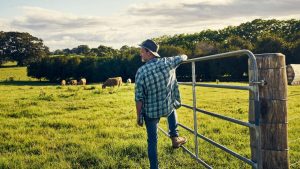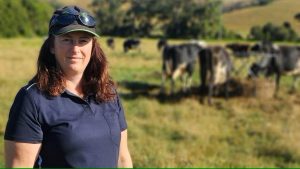
The future of controversial new legislation shaking up biosecurity funding in Australia is in doubt after the government failed to secure crossbench support.
The Greens have told the ABC they will not back the bill, which includes a $50 million levy to be paid by farmers.
That will leave the government without the numbers it needs in the Senate for the legislation to pass.
The levy was outlined in the 2023 budget and passed through the House of Representatives in March.
It was due to be implemented from July 1, but has faced intense opposition from farming groups.
Producers said the plans to make producers pay for biosecurity services could drive up food prices.
The Greens say they will not support the bill when it comes to the Senate, where it was due to be debated Tuesday.
Taxing farmers ‘unfair’
Greens agriculture spokesperson Peter Whish-Wilson said there were better ways to raise funds for pest and disease management.
“We support long-term, sustainably biosecurity funding, we recognise the importance of biosecurity to Australia,” Senator Whish-Wilson said.
“But we don’t believe the government’s bill and their legislation is the right approach.
“They’re spending half a trillion dollars on new nuclear submarines, we’re seeing them not choose to tax gas corporations — there’s a whole range of ways they can raise $50 million.”
He said the biosecurity policy was poorly designed, while the Greens also opposed the “principle” of the bill.
“Taxing farmers – and I do believe it is a tax, rather than a levy – to raise revenue, I believe it’s unfair,” Senator Whish-Wilson said.
“When you’re looking at the food chain, from processors through to retailers, they all benefit from food production in Australia and therefore strong biosecurity measures.”
‘This policy’s not right’
National Farmers’ Federation chief executive Tony Mahar said the decision was a win for farmers.
“Biosecurity’s critically important to farmers, to agriculture more broadly right across this country, so we need to get it right,” he said.
“This policy’s not right.”
Mr Mahar said farmers wanted to see a more transparent, collaborative approach that provided clarity on what funding would be used for.
“It’s been a united, coordinated front from representative groups and farmers,” he said.
“They aren’t opposed to paying their way for biosecurity measures – they already do that.
“Just whacking farmers with an extra $50 million is not the way to go about it.”
To withdraw or amend?
The farm commodities levy would have made up six per cent of the $1 billion the government hoped to raise to make biosecurity funding sustainable.
The bill includes a proposed levy on nearly 100 export commodities, including seafood, crops and dairy, which angered farm groups and other industries.
Importers would have contributed 48 per cent and taxpayers 44 per cent of the funding pool.
Federal Agriculture Minister Murray Watt said the proposal was fair because the cost burden was shared.
It is not yet clear whether the government will withdraw the legislation or seek to amend it.
“For a banana farmer, we’re talking about one tenth of a cent per kilogram of bananas,” Mr Watt said.
“We’ve seen much more money from taxpayers go towards biosecurity, much more money go from importers.
“We’ll have a look at where things stand now in the Senate and take it from there.”
You can now read the most important #news on #eDairyNews #Whatsapp channels!!!
🇺🇸 eDairy News INGLÊS: https://whatsapp.com/channel/0029VaKsjzGDTkJyIN6hcP1K
